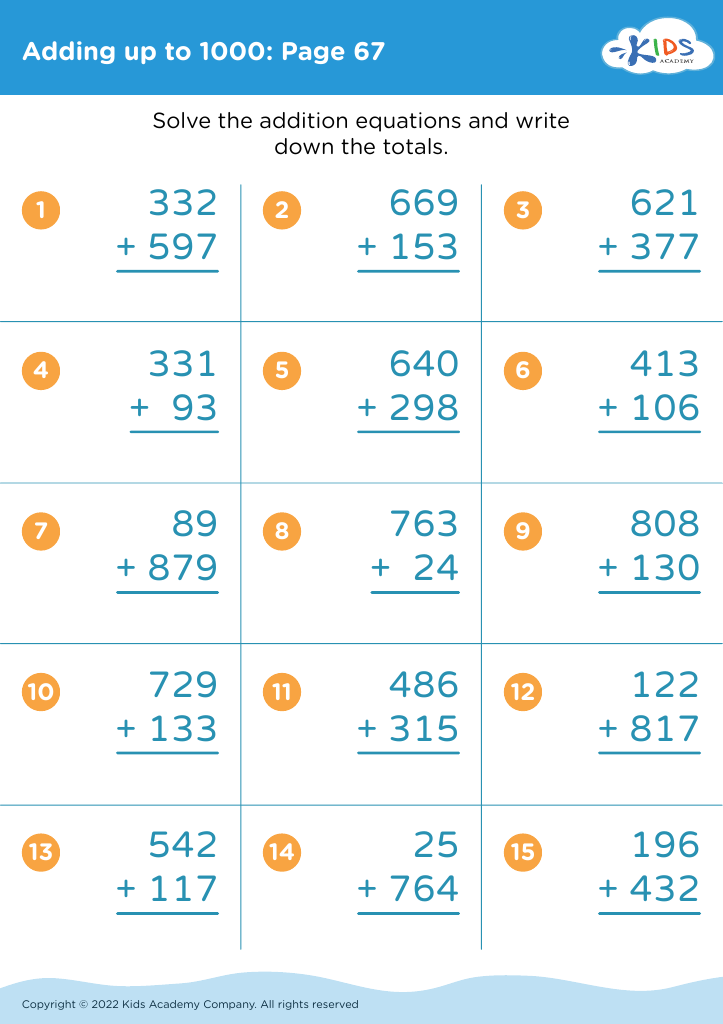Understanding multiplication Adding up to 1000 Worksheets for Ages 8-9
4 filtered results
-
From - To
Introducing "Understanding Multiplication: Adding up to 1000 Worksheets for Ages 8-9" – a comprehensive collection designed to make mastering multiplication as fun and effortless as possible! Perfect for young learners, these engaging worksheets break down complex concepts into digestible steps to enhance arithmetic and critical thinking skills. Each activity focuses on building proficiency in multiplying numbers and summing products up to 1000, offering endless opportunities for practice. Ideal for both classroom and at-home learning, our worksheets support and challenge students at every level. Give your child the tools they need for math success with Kids Academy's expertly crafted resources!
Understanding multiplication and adding up to 1000 are fundamental skills that parents and teachers should emphasize for children aged 8-9. Mastery of these concepts serves as a critical stepping stone for advanced arithmetic and higher-level math. Firstly, multiplication is more than just an arithmetic operation; it teaches kids to think in terms of groups and relationships between numbers, promoting logical reasoning and problem-solving skills. These abilities are essential in everyday situations, from dividing food equally to budgeting allowances.
Similarly, the ability to add numbers up to 1000 enhances a child's numerical fluency. This competence is important not just for math classes but for practical daily tasks like reading time, handling money, and estimating distances. A strong grounding in basic arithmetic also forms the bedrock for more complex topics, such as fractions, geometry, and later subjects like algebra and calculus.
Early proficiency in these areas fosters a sense of math confidence and reduces anxiety around math-related tasks. Supporting children in achieving these skills ensures they're well-prepared for future educational challenges, setting them up for long-term academic success and practical decision-making in all walks of life. Investing time and resources in these fundamental skills is thus a crucial part of effective early childhood education.















